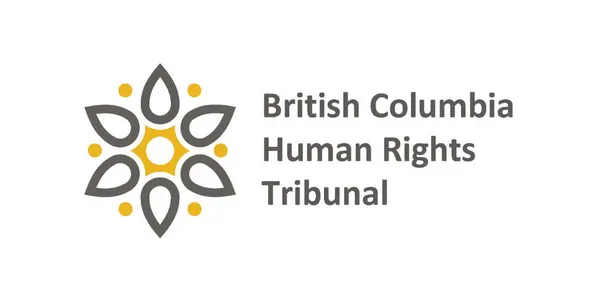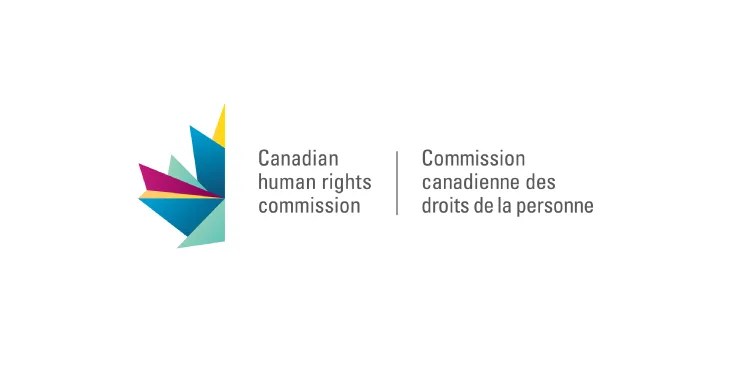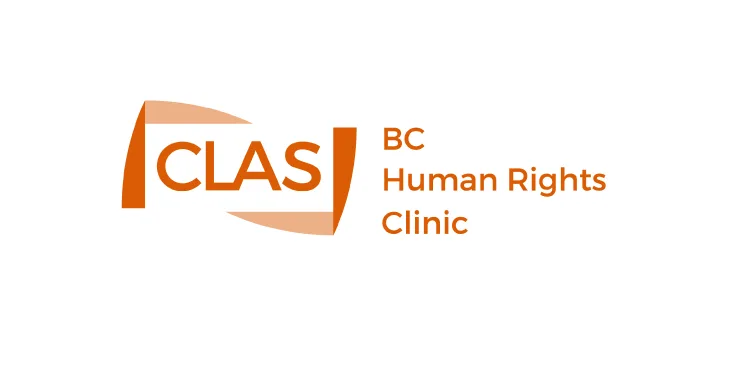
A microaggression can amount to discrimination.
“Wow, you speak English so well!”
“You’re pretty good looking for a trans girl.”
“Being Indigenous, you probably get this for free, right?”
Comments like these are often made casually. But they’re examples of microaggressions, everyday slights or insults targeting people from a marginalized group. Learn how microaggressions are a form of discrimination, and how you can respond to them.
Content warning
This page describes experiences of discrimination, including racism and homophobia. It may bring up difficult or traumatic memories or emotions.
What you should know
Microaggressions are brief, commonplace interactions that communicate negative viewpoints toward a particular group. By definition, they are subtle or indirect. Many are unintentional, made by someone who doesn’t realize the effect of their words or actions.
Microaggressions are typically based on stereotypes and unconscious biases. These attitudes are not created in a vacuum. They are connected to and learned from a society’s ways of doing and seeing things. This means that while microaggressions can be unintentional, they often replicate and reinforce systems of oppression.
Whether or not they’re intentional, microaggressions can amount to discrimination. Discrimination is when someone is treated badly because of a part of their identity that is protected under human rights law. These protected characteristics include a person’s race, Indigenous identity, sexual orientation, and age (for the full list, see our discrimination primer).
Unlike more overt types of discrimination (for example, being fired because you're pregnant), microaggressions can be difficult to prove. But as a form of everyday discrimination, they’re important to recognize and address. Below we offer a four-step approach.
A microaggression signals disrespect. It insults or demeans someone because of assumptions or stereotypes about part of their identity — their race, gender identity, or religion, for example.
There are often overlapping identity markers in play. The way these markers intersect can have compounding effects on a person’s experience of discrimination. For example, for someone who is First Nation and transgender, their unique experience of discrimination is likely to be impacted by their gender and their Indigenous identity.
As its name suggests, a microaggression can seem small. But over time, these incidents accumulate and can cause serious mental and even physical harm to those experiencing them. They also amplify implicit biases and systemic inequities in a workplace, classroom, or other space.
“Over a beer, I was telling some co-workers about an embarrassing moment I had with a client. Someone said, ‘That’s so gay!’ I pulled them aside afterwards and explained why that expression is problematic. I could tell they felt really bad. They were in the habit of saying it without realizing it could hurt someone’s feelings.”
– T.J., Kelowna, BC

Microaggressions happen everywhere — at work, at school, at the grocery store. Often, they come up in casual, everyday conversations. Here are some examples:
Asked of an Indigenous or racialized person: “Where are you really from?” This question positions the person of colour as not belonging. And it positions the questioner as belonging.
Said to a queer person: “You don’t sound gay.” This implies that queer people all behave a certain way. This is itself problematic. It also suggests that being “typically gay” is somehow undesirable.
Said by someone with privileged identities: “Everyone can make a decent living if they work hard enough.” This denies that systemic discrimination plays a role in a person’s success in life.
Asked of a woman: “Why don’t you smile more?” This implies that women should always be pleasant or submissive.
A gesture or a type of behaviour can also amount to a microaggression. For example:
Someone rolls their eyes when a person with a disability describes how the disability impacts their daily life. This invalidates the lived experience of the person with a disability.
Someone clutches onto valuable belongings when a Black man approaches. This behaviour reinforces the stereotype that Black men are threatening or violent.
A store clerk ignores an Indigenous or racialized person seeking assistance. This implies that people of colour aren’t entitled to the same level of service or attentiveness as white people.
Microaggressions like these usually fly under the radar. But they can amount to “death by a thousand cuts.” Over time, they accumulate and are often detrimental to a person’s mental health and wellbeing.
If you witness or experience a microaggression, it can be a good idea to respond. Next, we offer tips on how to do so.
Responding to a microaggression
Deciding how to respond — and whether to respond at all — to a microaggression can be stressful. You may feel like it’s not worth making a fuss about. Especially if the person who commits the microaggression is someone close to you, like a friend or family member. But particularly if you’re in a position of privilege, you have an opportunity to help call out microaggressions.
If you think you’ve experienced or witnessed a microaggression, consider this four-step approach.
The first step is recognizing that a microaggression has occurred. This can be tricky, since they’re often subtle. Sometimes they’re even disguised as compliments: “Black people are so good at sports!”
If you’re on the receiving end of a brief or subtle discriminatory encounter, you may ask yourself “Did I hear that right?” or “Did that really just happen?” If there were others who witnessed the incident, you can ask them what they saw or heard. They may help you firm up your own account of the facts. But unless it’s someone you trust, you may not be comfortable bringing it up. That’s totally normal, and it’s fine to keep it to yourself.
Reach out for support
If there was no one who witnessed the microaggression, consider reaching out to a close friend or family member who may have similar lived experiences as you. Walking through the incident with someone you trust can help you gather your thoughts. As well, having someone support you can help take the sting out of the situation.
If a microaggression has occurred, weigh the pros and cons of responding. Ask yourself, if I respond:
Will my physical safety be in danger?
Will this lead to an argument?
How will this affect my relationship with the person?
Will this cause me more emotional trauma?
And, if I don’t respond:
Will I regret not saying something?
Does that send the message that I condone the behaviour or comment?
If you are on the receiving end of a microaggression, it’s okay not to respond. If you think it would do more harm than good, don’t feel bad about letting it slide. It’s important to prioritize your own wellbeing too. Take care not to internalize the microaggression. Acknowledge that your feelings are valid, even if only to yourself.
Use your privilege and speak up
If you witness a microaggression and you have privileged identities — say something. Like it or not, your privilege may give your opinion more weight in the eyes of the offender or the institution.
Before you respond, think about what you’re trying to achieve. Is your goal to educate the person and help them understand why what they did was wrong? Are you coming to someone’s defence? Maybe you want to shine a light on a comment that would usually go unnoticed?
Being clear on your goal helps shape your response. If you seek to educate, you might lead with curiosity. It may even be appropriate to address the issue in private. If you’re defending someone, you might be more forceful. But be careful not to draw further attention to the person affected.
As a general rule of thumb, be assertive but allow yourself to be vulnerable and honest. Since microaggressions usually stem from unconscious biases, the person may not know they’ve committed one. So focus on the words or actions, not the person who committed them.
Confronting microaggressions takes courage and practice. Here are some tactics (with examples) you can use to make it easier.
1. Ask for clarification
“Can you explain a bit more what you mean by that?”
2. Separate intent from impact
“I know you didn’t realize this, but when you [insert comment/behaviour], it was hurtful/offensive because [insert reason]. Maybe next time, you could [insert different comment/behaviour].”
3. Share your own experience or process
“I noticed that you [insert comment/behaviour]. From my perspective, this is what it was experienced as.”
“I noticed that you [insert comment/behaviour]. I used to do/say that too, but then I learned [insert experience].
As described above under what you should know, a microaggression can amount to discrimination. Discrimination is when someone is treated badly because of a part of their identity that is protected under human rights law, such as their race, Indigenous identity, sexual orientation, or age. Our discrimination primer can help you figure out whether you were discriminated against, and what other steps you might consider. For example, you might raise your concerns more formally, or make a human rights complaint.
If you commit a microaggression
“I recently met up with a friend of mine. She is Black and a working actor. I told her it was great that agencies are seeing the need to give more opportunities to racialized folks. I said ‘I bet it’s been good for your career.’ She winced, and I realized my comment had been insensitive. I immediately apologized, and told her I was wrong to say that. I asked her to tell me about what her experience has been like.”
– R.S., Vancouver, BC

We’re all human. We all make mistakes, including committing microaggressions. Sometimes you may be aware of it. Other times, it takes someone else to point it out to you. Either way, we offer a three-step approach to owning up to the mistake and learning from it.
If you think you committed a microaggression, own up to it. Everyone makes mistakes. It doesn’t make you a bad person. But you do need to be more aware of your biases and your impact on people. If someone points out that you’ve committed a microaggression, resist the urge to get defensive. Ask them to share their point of view.
Some possible ways to respond:
“Thank you for trusting me enough to bring this to my attention.”
“I sense what I said was hurtful. Can you tell me how it made you feel?”
Offer a genuine apology. Acknowledge the impact your comment or behaviour had on the person. For example:
“I’m sorry you have had to deal with that, and now here I am inadvertently doing the same thing. I’ll work on doing better.”
“I’m sorry I said something hurtful and insensitive. I want you to feel safe and relaxed around me. I want to hear more so I can learn from it.”
Be empathetic and curious about the other person’s experience. Listen to what they have to say — your priority should be to make them feel heard. Use the experience as a chance to better understand your own personal biases. It takes time and practice to avoid committing microaggressions. Embrace the challenge.
Who can help

BC Human Rights Tribunal
Receives and resolves discrimination complaints under BC law.

Canadian Human Rights Commission
Deals with discrimination complaints under federal human rights law.

BC Human Rights Clinic
Provides free assistance and representation to those who qualify for help with a discrimination complaint under BC law.

Access Pro Bono's Free Legal Advice
Volunteer lawyers provide 30 minutes of free legal advice to people with low or modest income.

Access Pro Bono’s Everyone Legal Clinic
Clinicians provide affordable fixed-fee services on a range of everyday legal problems.

Lawyer Referral Service
Helps you connect with a lawyer for a complimentary 15-minute consult to see if you want to hire them.

BC Legal Directory
Search for a lawyer by community or legal issue. From the Canadian Bar Association, BC Branch.

